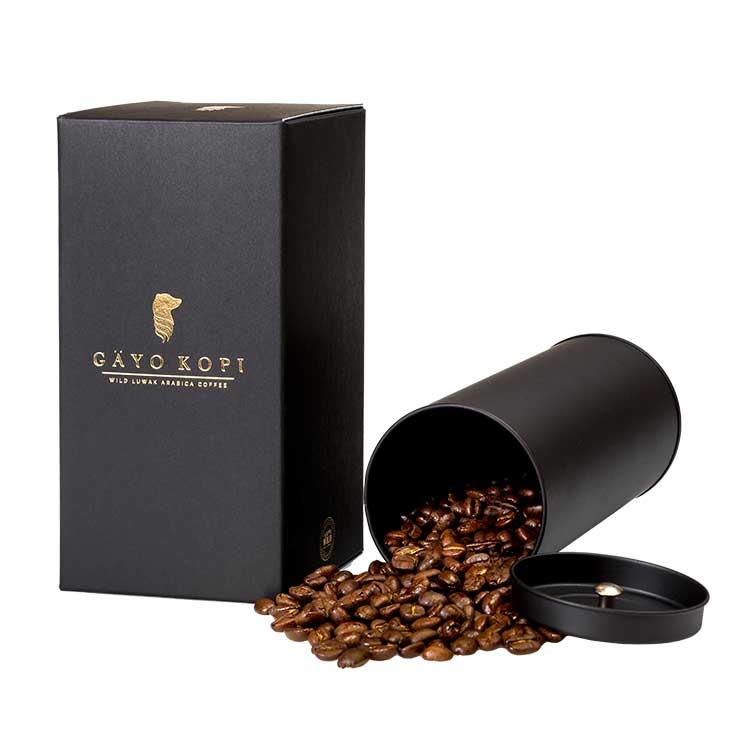
Kopi Luwak Arabica Coffee (100G) Review
The Secret Behind Kopi Luwak's Exquisite Flavor: Fermentation And Enzyme Action. Kopi Luwak, also known as civet coffee, is one of the most expensive and sought-after coffees in the world. Renowned for its unique and exquisite flavor profile, it is no wonder that coffee enthusiasts are willing to pay a premium price for a cup of this rare brew.
Kopi Luwak White Koffie Original 10x20gr (Renceng) Shopee Indonesia
Canva. Canva. The civet, also known as kopi luwak, is small cat-like mammal native to Africa, southern Europe and parts of Asia. Civets enjoy coffee berries as part of its diet, the seeds of which we know as coffee beans. As these beans travel the digestive tract of the civet, enzymes are believed to work their magic on them.
Jual Kopi Luwak White Koffie Original Isi 18 Sachet Shopee Indonesia
What's The Kopi Luwak Price? Since we stated that it is the most expensive coffee in the world, you may be wondering how much it is. A cup of Kopi Luwak coffee usually costs between $35 and $100 while the per-pound price can range from $100 to $600.

What Is Kopi Luwak? The Disturbing Story of Cat Poop Coffee Coffee Affection
For orders using our standard/free delivery option in the US, UK, EU or Canada, we offer a 3-7 working day delivery time. Customers in these countries can also pay $9.99/€8.99/£7.99 to upgrade to expedited 1-3 working day delivery time. For orders to countries outside of those mentioned, its an approx 7-12 working day delivery time.
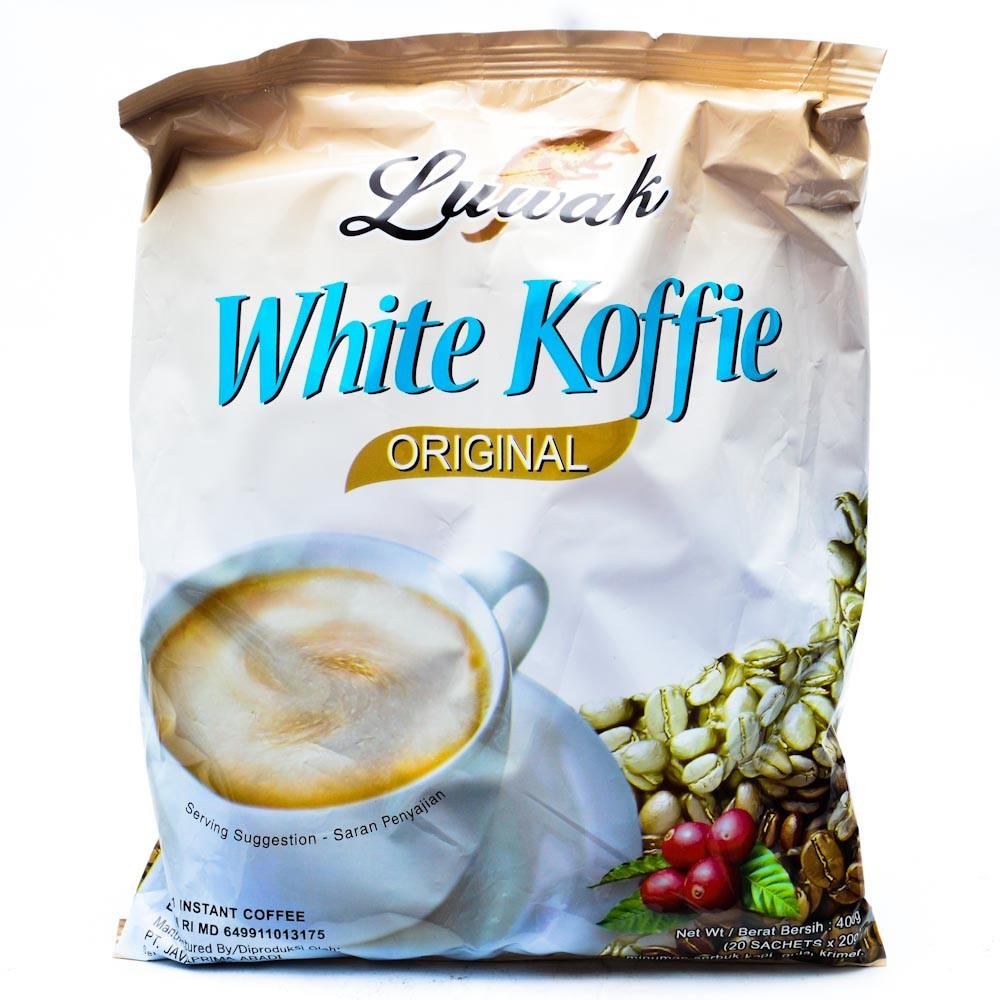
Luwak White Koffie Original 400g from Buy Asian Food 4U
Just a single cup of Kopi Luwak coffee can cost you as much as $100. To put that into context, the average cup of coffee from Starbucks costs a little over $3. That means, for a single cup of Kopi Luwak coffee, you could have had as many as 50 cups of coffee from the world-famous coffeehouse chain - a month's supply for the average coffee.

Kopi Luwak koffie. Direct Trade. Single Origin. The Original by Rich.Exclusive. De meest
Kopi luwak is known around the world for one reason: it gets pooped out before any human even touches it. That's because kopi luwak refers to coffee beans eaten and digested by the civet cat, a mammal native to tropical parts of Asia and Africa. The beans, collected from the civet cat's droppings, are used to make a strangely flavorful brew.

Volcanica Coffee Company Kopi Luwak Coffee 16 oz Free Range Kopi Luwak
Buy Kopi Luwak. Kopi Luwak tastes smooth, and it's not bitter, like other types of coffee. The balanced flavour is incomparable. Smooth, delicious, one-of-a-kind. Order today to taste it yourself - Free shipping over $50. 350g (12.3 oz) $ 249.00 ( $ 299.00 ) Add To Cart. Roasting Info.

100 Wild Kopi Luwak (Green Beans Unroasted) Republica Coffee Roasters
The beans are then excreted and used to produce a smooth, chocolaty coffee called kopi luwak. Sounds so tasty! A pound of these coffee beans will set you back $600.
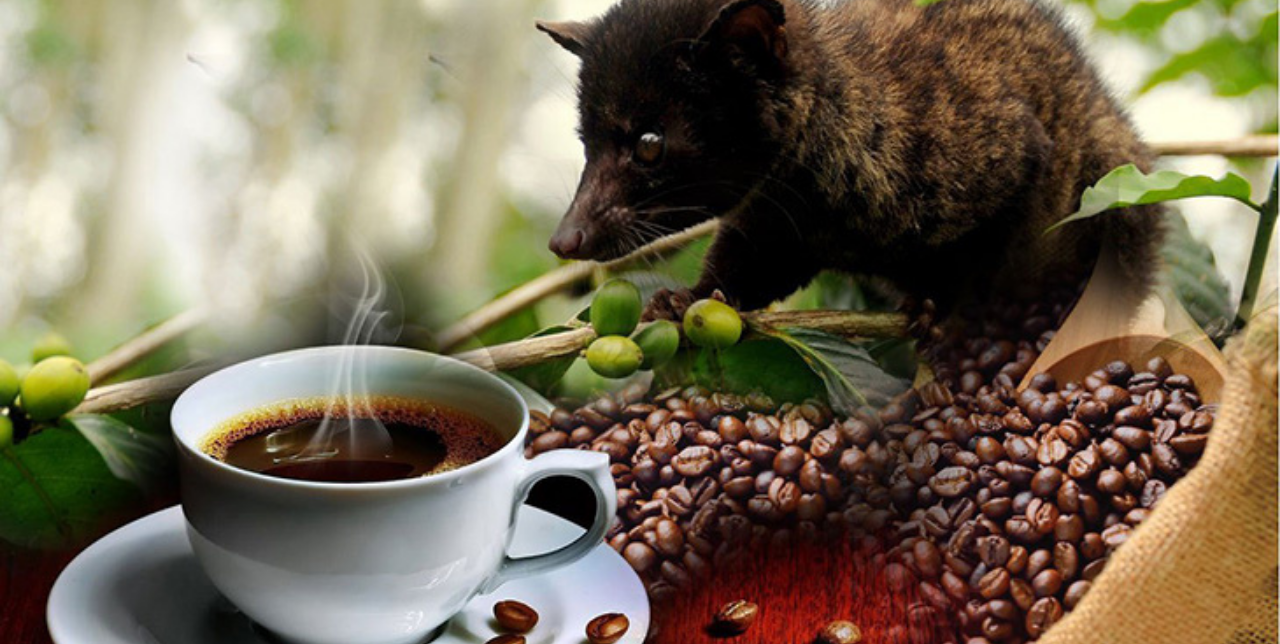
Why Try Kopi Luwak Coffee? Kopi Luwak
The History Kopi Luwak coffee comes from the Indonesian island of Java and Sumatra, an area well-known for its excellent coffee. Also native to the area is a small civet-like animal called a Paradoxurus. That's the scientific name, the locals call them luwaks. These little mammals live in the trees and one of their favorite foods is the red.

Kopi Luwak Coffee 8 oz. Wild Harvested Dark Roast Canopy Botanicals
How to select the highest grade of Kopi Luwak beans Kopi Luwak, also known as civet coffee, is a rare and expensive delicacy known for its distinct aroma and flavor. The beans are harvested from the droppings of civet cats, which feed on coffee berries. Finding the highest grade of Kopi Luwak beans can be a challenge, as there are many factors that influence their quality. One of the most.
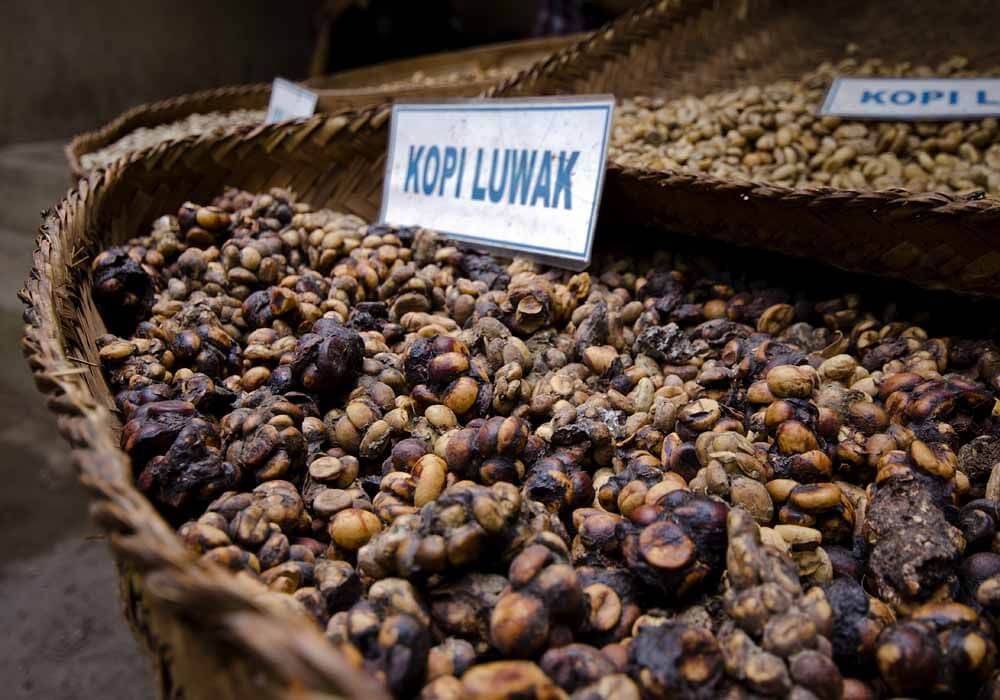
Vietnamese Kopi Luwak The Most Expensive Coffee In The World
kopi luwak, (Indonesian: "civet coffee") the coffee bean or specialty coffee that is digested by, fermented within, and then excreted by the Asian palm civet—popularly called a luwak in Indonesia but found throughout South and Southeast Asia.The coffee bean produced in that manner was discovered and collected by native farmers in Indonesia during the colonial period of the 19th century.

Kopi Luwak Coffee 4 oz. Wild Harvested Medium Roast Canopy Botanicals
More specifically, something called Kopi Luwak White Koffie that ended up being my go-to instant coffee. First off, this isn't the actual Kopi Luwak coffee that's made from the partially digested coffee cherries eaten and shit out by the Asian palm civet. This is a cheap imitation. It's dehydrated Arabica coffee, non-dairy creamer, and sugar.

Kopi Luwak Coffee 4 oz. Wild Harvested Medium Roast Canopy Botanicals
The story of Kopi Luwak begins in the late 1600's when the Dutch governor of India shipped the first seedling of Arabica coffee to the Dutch East Indies (now Indonesia). By 1711 the first exports began shipping to Europe, and Indonesia became the first place outside of Arabia & Ethiopia where coffee was widely cultivated.
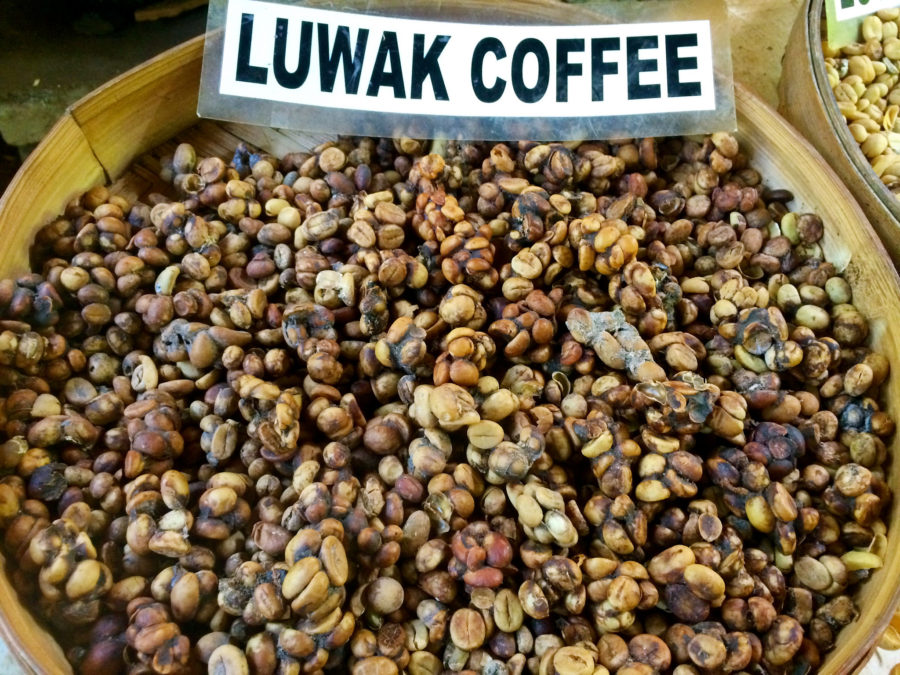
Indonesian Kopi Luwak Coffee History Keys Coffee Co.
The beans are then collected by farmers, washed, and roasted to make coffee. The process of making kopi luwak coffee is unique because the enzymes in the civet's digestive system are believed to break down the proteins in the coffee beans, which alters the flavor and aroma of the coffee. The result is a coffee that's said to be less bitter.

Kopi Luwak Local Coffee (Beverage) From Indonesia, Southeast Asia
Kopi Lueak, likewise called civet feline coffee or feline poop coffee. The historical backdrop of Kopi Luwak coffee begins way, harking back to the 1700s when the Dutch previously set up coffee estates in Sumatra and Java. As indicated by legend, local people saw that wild animals were eating the ready coffee cherries and abandoning the beans.

Kopi Luwak Coffee 4 oz. Wild Harvested Dark Roast Canopy Botanicals
Place the double fold (the thicker of the two sides) over the runnel (the channel on the brewer). Add the grounds to the filter. Shake the basket to settle the grounds, but never pack them. Remove the boiling water from the heat and let it stand for 1 minute or until the water stops bubbling.